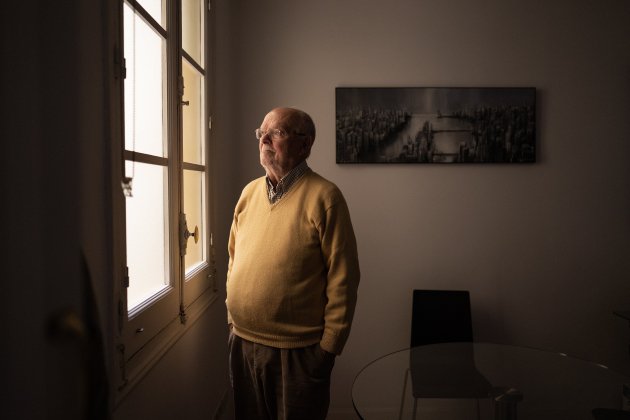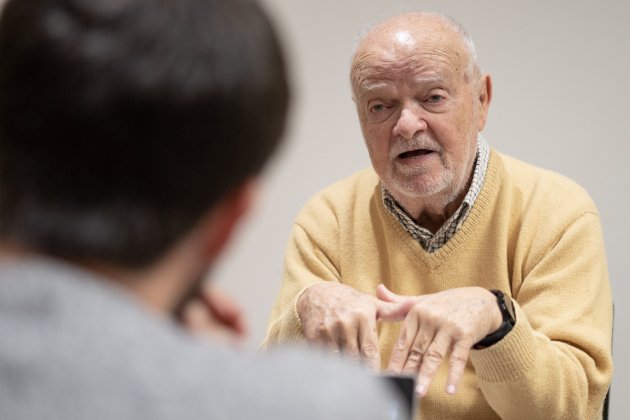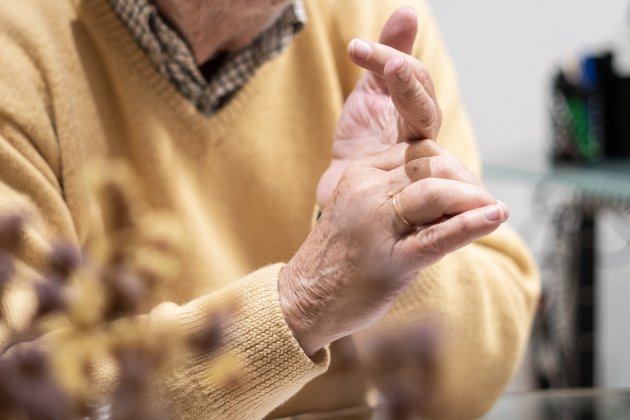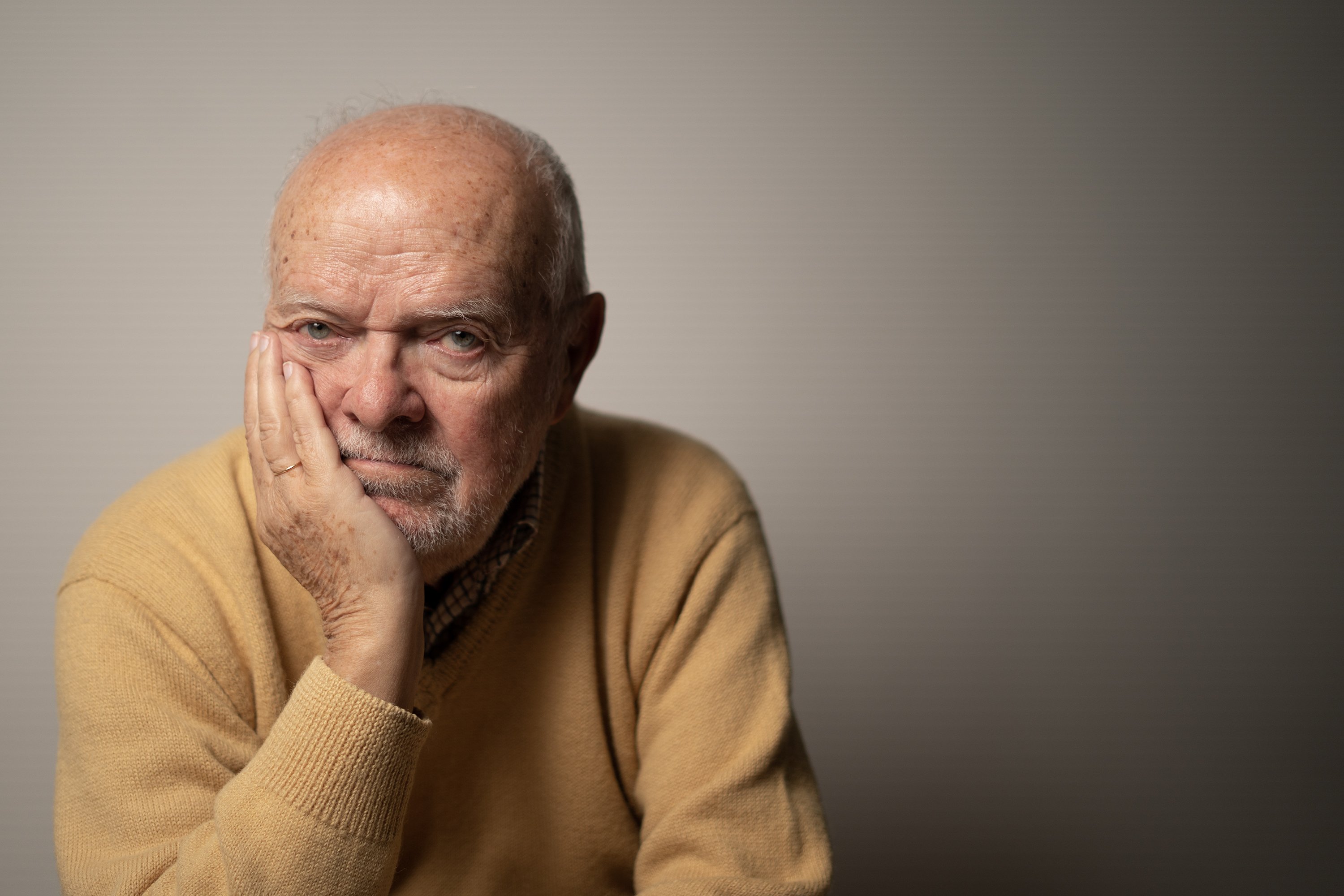The judgment of the European Court of Justice (ECJ) on the arrest warrant for exiled Catalan politician Lluís Puig is so difficult that it leaves room for many interpretations. It needs to be sifted by the legal experts to separate the wheat from the chaff. The judge emeritus of the Spanish Supreme Court, José Antonio Martín Pallín (A Coruña, 1936) receives El Nacional.cat at the law firm where he works, in Madrid. He argues that it is a text that "returns to the starting point", points out that "it is difficult to sustain" that the Spanish judicial system has "systemic deficits" although he notes the sensitive areas that Belgian judges could take into account. On Spain's 'Only yes means yes' law, he asserts that it should not be amended because "the cure is worse than the disease".
The interpretation of the ECJ's judgment varies according to the company you are in. To your understanding, does it say that judge Pablo Llarena is in the right, or on the other hand, does it gives room for maneouvre to the Belgian courts if they receive another European Arrest Warrant (EAW)? Where are the nuances located?
After reading it from top to bottom, I have come to the conclusion that it is a declarative ruling that sends everything back to the starting point. In other words, it is clear that Llarena can launch more EAWs, but there is also the possibility that the Belgian courts will respond to him more definitively. Those are two different readings.
In your opinion, does it clarify whether the Supreme Court is the proper tribunal to try the Catalan exiles?
I think it leaves enough discretion to the Belgian judges to determine whether the [principle of the] court established by law, which is in the EU Charter of Fundamental Rights, is violated. It must also be said that, traditionally, issues of jursidiction have never been an impediment to surrendering a person because the European bodies understand that it is a very technical issue.

In Schleswig-Holstein the general principle of trust was broken and that caused a very bad impression
What else do you think the Belgian courts can focus on?
The Charter of Fundamental Rights itself enshrines the right to have convictions reviewed by a higher court. When the case was taken over by the criminal chamber of the Supreme Court, this right was denied. They will take this into account as well.
Were the previous arrest warrants handled correctly?
The Spanish judicial system, the media and the politicians did not appreciate that when an EAW is issued it means that there is mutual trust in the democratic functioning between two states. Suddenly that fell apart and the Spanish judges rejected the idea that Schleswig-Holstein would hand over Carles Puigdemont only for the misuse of public funds charge. This created a bad impression and encouraged the arguments of those who believe that there was persecution. In that case, the general principle of trust was breached. Llarena's passivity also attracts one's attention. Surely the irate reaction of the Supreme Court when informed about the pardons will also be cited. The court could have been more impartial and objective. But instead it issued a very harsh text criticizing the central government for granting them.
Llarena has come out in favour of activating another warrant against Lluís Puig after the Supreme Court's interpretation of the repeal of the crime of sedition and the reform of the misuse of funds. With what we have on the table now, does this request have a future?
Lluís Puig is the person who gives rise to this ruling, he is at the centre of it and not those who are waiting to see if their parliamentary immunity is lifted or not [the MEPs Carles Puigdemont, Toni Comín and Clara Ponsatí]. In this regard, Llarena cannot wait for the European General Court (EGC) to decide the question. If this court grants them immunity, it covers the entire territory of the European Union. And "entire" means Spain as well. If they maintain their immunity, these individuals will be able to move freely throughout the European territory, and if they were not able to, there would be very serious problems with the institutions. If their immunity is withdrawn, they will become citizens with the conditions they had before becoming MEPs.

And if Belgian justice ends up handing them over, what could happen?
In that situation, sedition would not exist and only the misuse of funds charge would remain. Under the revised Penal Code regulation, they could be handed over for having allocated public funds to other purposes and not because they have appropriated the money. With that, the penalty would be much lower [from 1 to 4 years in prison] and, thus, the Belgian court could hand them over with the condition that they would not be sent to provisional prison.
It is difficult to sustain that Spain has "systemic defects" in the functioning of its courts
The defence lawyers of Puigdemont and the rest of the accused are attempting to show that the independence supporters are part of a persecuted national minority and that in Spain they are not guaranteed a fair trial due to "systemic deficits" in the judicial structure. Can this be proven?
In principle, it is difficult to sustain that Spain has "systemic defects" in the functioning of its courts, bearing in mind that all countries must be democratic because, if they are not, they would be expelled. I believe that the Belgian judiciary will not say that there is persecution against a group characterized by pro-independence ideas, but they will take into account how the Supreme Court has behaved, how it has rejected extradition for misuse of funds, how it snapped back in an unrestrained way against the central government over the pardons... If I were a Belgian judge I would say: "What is happening in Spain with these individuals does not respond to a criterion of equanimity". And with regard to the pardons I would say to [the Supreme Court]: "Don't take the opportunity to carry out a political campaign against the government, but rather, say complete freely that, given the nature of the crimes and the personality of the perpetrators, you don't think the concession of the crimes is appropriate." The Supreme Court has been neither serene nor impartial and this will attract the attention of the Belgian judges.
Will those arguments be sufficient?
That wouldn't be sufficient. If we read part of the judgment it is clear that Belgium could not correctly claim that Llarena is not the court with jurisdiction. But at the same time, the Belgian judges could also ask the investigating judge to explain the trajectory of the complaint: why did it first go to the National Audience, why were other closely related matters were to ordinary court number 13 in Barcelona and why was the autonomy of Spain's communities not respected knowing that they have jurisdiction to try the crimes that have been committed within their territories.
What does that mean?
It is a law that governs the 16 Spanish autonomous communities, less so in Madrid. It's a golden rule. If the crime is committed within Catalonia, given the status of the defendants [as holders of political office], the court with jurisdiction is the High Court of Justice of Catalonia (TSJC). This could also be claimed by the Belgian judges. The Supreme Court has taken away the case via an artifice, almost a procedural fraud, because it has alleged that, since Raül Romeva frequently travelled abroad, the crime was also committed abroad.

Let's change the subject... To what extent should the law of 'Only yes means yes' be tweaked? Do you think that this is a case of it being better to admit a mistake was made?
No, the cure is worse than the disease. Repairing the wrong is worse than what already exists. It is a law that has been constructed under the pressure of the media, creating an alarmism that does not exist. It can never be a good law. The proposed changes would be ineffective because they would have no effect on events that occurred before they were enacted. In addition, it goes against a trend that is typical of all democratic societies. In this case, the criminal law is not achieving the effects simply by increasing the penalties. Although the law has many aspects that I think are good.
Increasing the penalties for sexual offences is not good criminal policy
Is the solution to increase the penalties at the lower end of the sentence range?
It must be left as it is and the law interpreted correctly according to the criteria of the chief public prosecutor and the Penal Code via its fifth transitional provision. According to that, if the penalty that has been imposed - under the previous, harsher law - can now still be imposed within the more favourable range of the new law, the sentence should not be modified. This rule has only been followed by some courts. Others have not done so and will have to explain to society why they have decided not to apply the transitional provision. There is a consensus in virtually all democratic societies that increasing the penalties for sexual offences is not good criminal policy.
Is it a problem of interpretation of the law, then?
I am not saying that the judges have sexist ideas, it is simply a criterion of interpretation that, in my opinion, is not correct. Then there will be cases that do not conform to this rule and will have to be studied individually.
Podemos defends that judges need more training in gender violence. Do you agree?
A judge has to have enough background to know that partner, marital and sexual relationships respond to atavistic cultural behaviour. Leave out the specialists, the training courses... What's the point? If a judge has common sense, culture and a sense of reality, he can fulfill his duty perfectly. A judge must know what social reality is. It's not me saying that, the civil code says it.
Are there sexist judges?
Of all the sentences that I have consulted and whose convictions have been reviewed, 87% were female judges.

